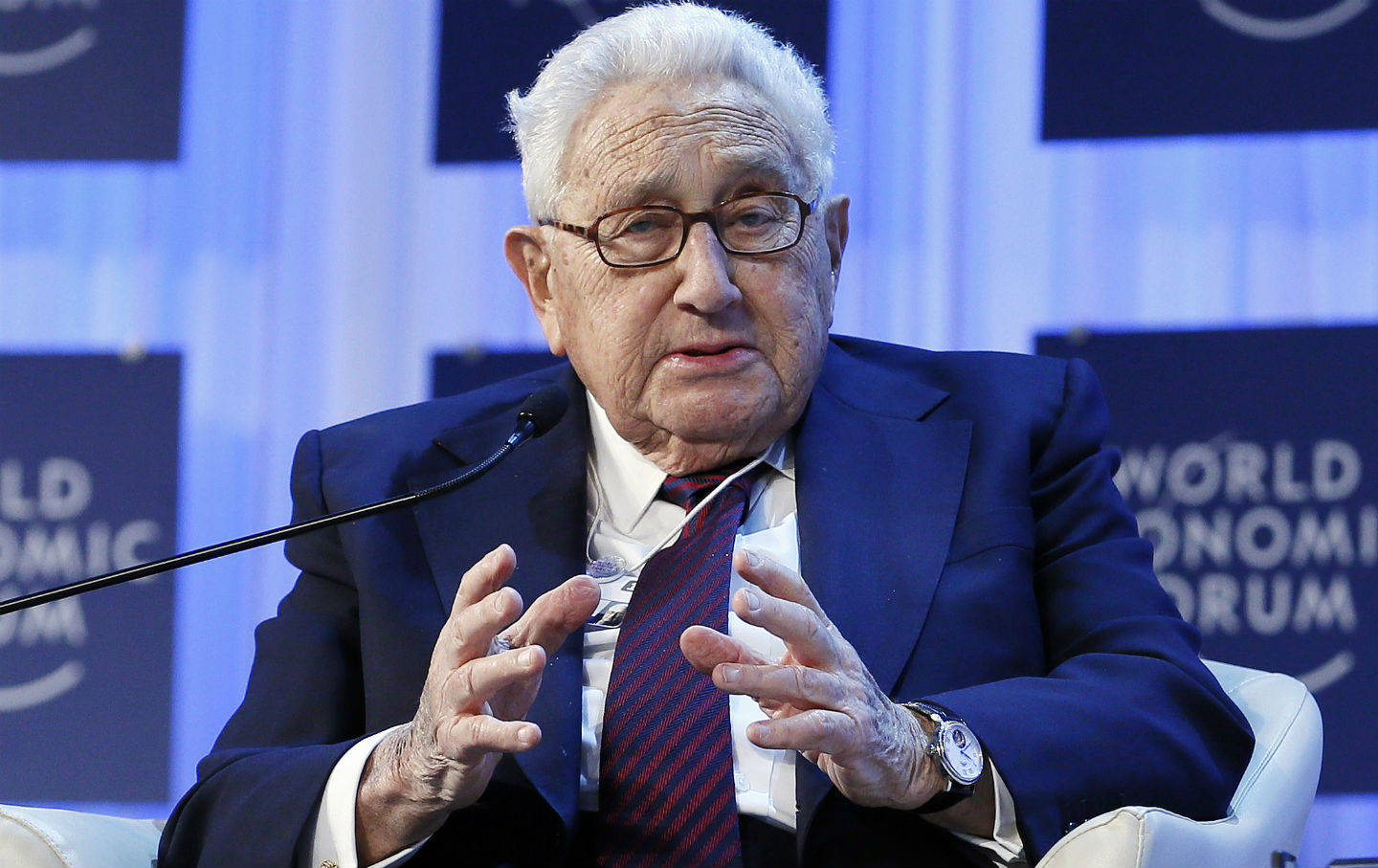by GREG GRANDIN
 Henry Kissinger speaks at a World Economic Forum meeting in 2013. PHOTO/Reuters/Pascal Lauener/The Nation
Henry Kissinger speaks at a World Economic Forum meeting in 2013. PHOTO/Reuters/Pascal Lauener/The Nation
How Henry Kissinger Helped Create Our “Proliferated” World
The only person Henry Kissinger flattered more than President Richard Nixon was Mohammad Reza Pahlavi, the Shah of Iran. In the early 1970s, the Shah, sitting atop an enormous reserve of increasingly expensive oil and a key figure in Nixon and Kissinger’s move into the Middle East, wanted to be dealt with as a serious person. He expected his country to be treated with the same respect Washington showed other key Cold War allies like West Germany and Great Britain. As Nixon’s national security adviser and, after 1973, secretary of state, Kissinger’s job was to pump up the Shah, to make him feel like he truly was the “king of kings.”
Reading the diplomatic record, it’s hard not to imagine his weariness as he prepared for his sessions with the Shah, considering just what gestures and words would be needed to make it clear that his majesty truly mattered to Washington, that he was valued beyond compare. “Let’s see,” an aide who was helping Kissinger get ready for one such meeting said, “the Shah will want to talk about Pakistan, Afghanistan, Saudi Arabia, the Gulf, the Kurds, and Brezhnev.”
During another prep, Kissinger was told that “the Shah wants to ride in an F-14.” Silence ensued. Then Kissinger began to think aloud about how to flatter the monarch into abandoning the idea. “We can say,” he began, “that if he has his heart set on it, okay, but the President would feel easier if he didn’t have that one worry in 10,000 [that the plane might crash]. The Shah will be flattered.” Once, Nixon asked Kissinger to book the entertainer Danny Kaye for a private performance for the Shah and his wife.
The 92-year-old Kissinger has a long history of involvement in Iran and his recent opposition to Barack Obama’s Iran nuclear deal, while relatively subdued by present Washington standards, matters. In it lies a certain irony, given his own largely unexamined record in the region. Kissinger’s criticism has focused mostly on warning that the deal might provoke a regional nuclear arms race as Sunni states led by Saudi Arabia line up against Shia Iran. “We will live in a proliferated world,” he said in testimony before the Senate. In a Wall Street Journal op-ed co-authored with another former secretary of state, George Shultz, Kissinger worried that, as the region “trends toward sectarian upheaval” and “state collapse,” the “disequilibrium of power” might likely tilt toward Tehran.
Tom Dispatch for more
